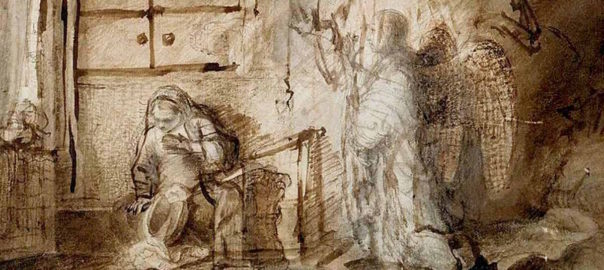
The Gospels of Matthew and Luke have extensive birth narratives with the young, betrothed Jewish woman name Mary as the focus of God’s grace and self-disclosure to the world. Luke’s Gospel carries this theme of empowerment and equality forward with the list of women that funded the mission of Jesus next to the list of his first disciples (Luke, chapter 8). In almost every passage with parables, Luke has a woman and a man as the focus of Jesus’ illustrative teaching (see Luke, chapter 15). And in all the gospels, women are the first to see the Risen Christ and share the good news.
Throughout history, there are godly women in all vocations who proclaimed the gospel, ruled empires, led communities, pioneered new ministries, and raised families. The great 4th century Cappadocian Fathers were discipled by Macrina the Elder and Macrina the Younger. Hildegard of Bingen confronted bishops and popes, offered deep scientific and theological insights, and composed amazing poems and songs in a medieval era if systemic inequality. Eleanor of Aquitaine astonished all around her. From the 1800s to the present, courageous female leaders have served the vulnerable, fought for justice, started businesses, and made the world a better place. Think of Dorothy Day, Catholic social reformer, Margaret Thatcher, Methodist Prime Minister of Great Britain, Mother Teresa, prophet for the poor, and many others. There stories are often buried under the weight of a dominant patriarchal culture.
It is time for all thoughtful persons to end ungodly and unprincipled sexism and affirm the equality of all persons and the gifts that each one brings to our world. This is not eliminating male and female differences or opening the door to confusion. In our responses to the anarchistic anthropologies of our day, we must not react with unjust subcultural responses, confusing truth with particular cultural or historical gender roles. In the end, we are catching up to the divine image bestowed by the Creator.
